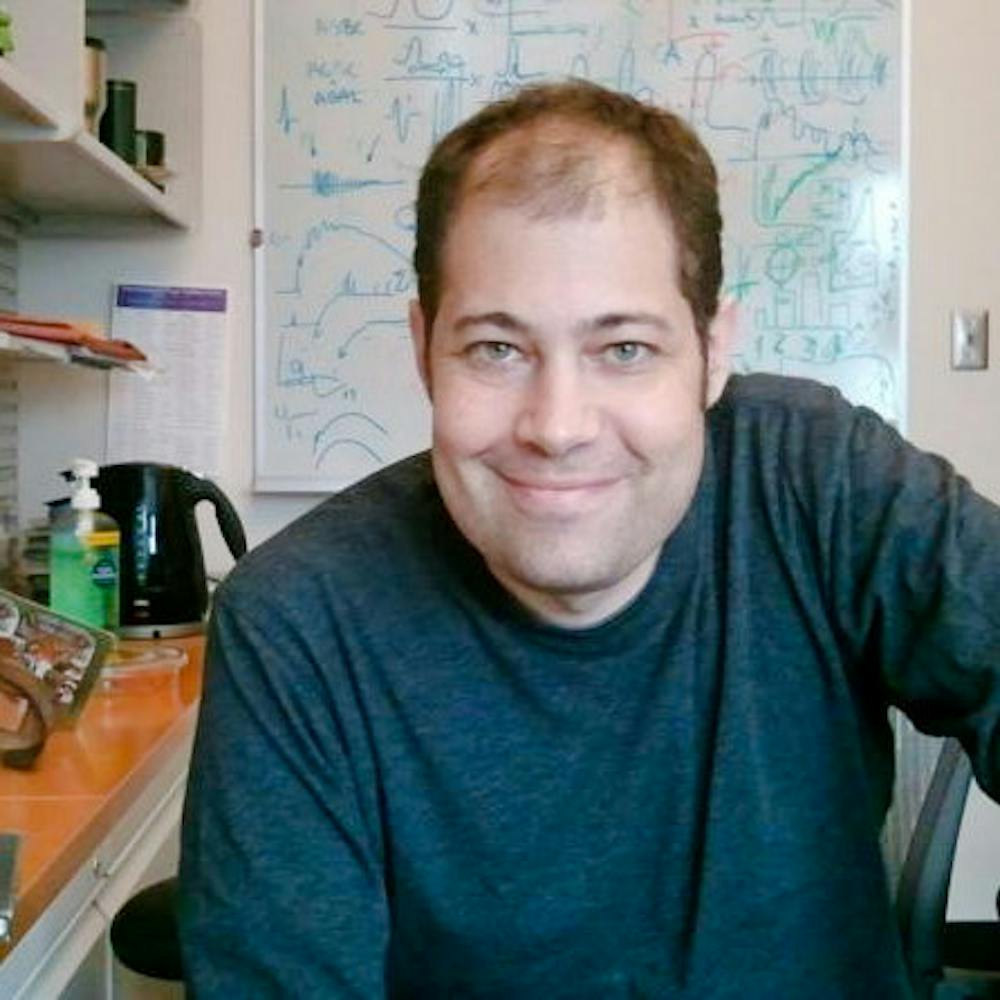Professor of Neuroscience Carlos Aizenman ’93 discovered his passion for neuroscience while studying on campus as a University undergraduate. Now, he plays an integral role in teaching students who share his same scientific interests and helping to increase diversity in the field.
Aizenman has taken on many roles within the University’s neuroscience programming; as a professor, a principal investigator of his lab and Diversity and Inclusion Action Plan chair for the department.
In September, he was named to CrossTalk’s list of “100 inspiring Hispanic/Latinx scientists” for his work in science and his dedication to diversity and inclusion at Brown.
“We received hundreds of nominations of different scientists, but Dr. Aizenman definitely stood out to us,” said Christina Termini, postdoctoral fellow at the University of California at Los Angeles and author of the article that announced the list.
Aizenman was chosen not only because of his scientific achievements and “his connection to the Hispanic and Latinx community, but also his dedication toward improving diversity at the institutional level, as well as the national level,” she said.
Among various efforts to increase diversity in science, Aizenman was formerly the faculty liaison for the University’s chapter of the Society for the Advancement of Chicanos and Native Americans in Science and is co-director of the Post-Baccalaureate Research Education Program.
The Aizenman Lab studies how early life experiences affect neural connections in the developing brain. They use the visual system of tadpoles to model these networks in the context of normal development and neurodevelopmental disorders, such as autism. The lab has studied how a certain anti-epileptic drug can increase the connectivity between neurons — a type of cell in the nervous system — in unborn children, which has been linked to the development of autism, The Herald previously reported. The researchers are currently investigating a gene involved in neural plasticity, or the adaptability of the nervous system, which is often dysregulated in autism, Aizenman said. Additionally, they are looking into how abnormal connections between neurons may result in epilepsy.
Outside of his lab space, as DIAP chair for the neuroscience department, Aizenman advocates for department-wide programs seeking to increase equity, such as training programs designed to teach faculty to be more inclusive and mentor across cultural differences, he said. The DIAP is also currently working to increase opportunities for students on work-study financial aid by adding available paid positions in University research labs.
“We always talk about diversity and inclusion, but one thing (that) is often overlooked is equity — having equitable access to research,” Aizenman said. “I definitely think that there's a lot of room for these programs to make it just as easy for anyone who wants to work to do that … and not have to worry about whether they have to work for free.”
As co-director of the PREP program, Aizenman works with students who want to apply to graduate school but do not have the necessary experience or resources. The program enables them to spend another year at the University building professional development skills, gaining research experience and enrolling in additional courses, he said. The initiative also educates students on the graduate school application process and provides guidance on interviews and essays.
In addition to being a leading figure in efforts to support underrepresented students throughout campus, Aizenman directly mentors students in his lab. He encourages students to think critically about their research to understand its importance, while also advocating for them and providing them with the means to achieve their goals.
Every student comes from a different background and requires different guidance to be successful, Aizenman said. “I think the key is to not just focus on the science but focus on the individual.”
Alexis Toliver GS, a member of the Aizenman Lab, has worked very closely with Aizenman to receive the prestigious National Health Fund and the Howard Hughes Medical Institute Gilliam Fellowships. She expressed appreciation for his mentorship and accommodation for students.
Toliver described a time she was released from the hospital on the day she had to submit the NSF grant. “He supported me even as I submitted it last minute coming straight out of the hospital,” Toliver said.
She also added that Aizenman “does a great job of providing opportunities for students of color.”
Jackie Ho ’21, who joined the Aizenman Lab as a sophomore, said that through Aizenman’s mentorship, she’s developed a deeper interest in basic science, which has inspired her to apply to MD-PhD programs and continue research at the graduate level. Ho added that she has had a great experience working in “one of the most diverse” neuroscience labs on campus, where she’s always “been welcomed warmly.”
“He’s helped me get the resources I need to succeed,” Toliver said.

ADVERTISEMENT




